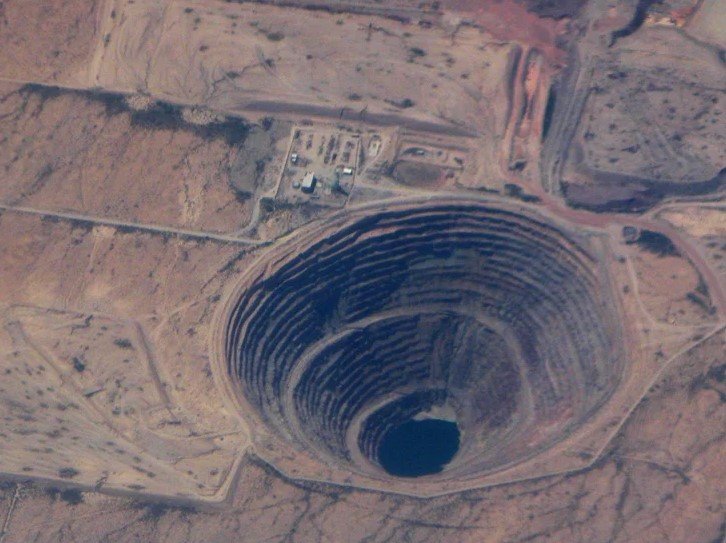Egypt is pushing major reforms in its mining industry to increase its share of the gross domestic product from 0.5 percent now to 5-6 percent by 2030. Oil and Mineral Resources Minister Karim Badawi announced these plans at a mining conference in Perth, Australia, on September 8, 2025, focusing on new incentives to draw foreign investors and boost economic growth.
Key Reforms Driving Change
Egypt has rolled out several updates to make its mining sector more appealing. These include legal changes that simplify rules for investors and turn the Egyptian Mineral Resources Authority into a more independent body. This shift aims to speed up development and cut red tape.
The government also plans an aerial survey to map natural resources across the country. This will help identify new mining spots for metals like gold, zinc, and iron. Officials expect this to provide clear data for companies looking to invest.
Another big step is launching an online mining portal, much like the one used for oil and gas. It will offer maps, data, and easy access for global firms. These moves come as part of broader economic reforms backed by the International Monetary Fund.
Incentives for Foreign Investors
To attract overseas money, Egypt offers tax breaks and faster approvals. One key perk is the golden license system, which cuts licensing time to just 20 working days through the General Authority for Investment and Free Zones.

Investors can get up to 50 percent of their project costs refunded if they use foreign currency for at least half the funding. This refund happens within 45 days, helping with quick cash flow. Special tax exemptions on land and infrastructure last up to 10 years, reducing risks for long-term projects.
These incentives have already shown results. In fiscal year 2024-2025, gold and silver output grew by 14 percent, bringing in 1.54 billion dollars. Exports of ores and mining products hit 1.4 million tonnes, earning 52.5 million dollars.
Here are some top incentives in detail:
- Tax deductions up to 50 percent on investment costs.
- Fast-track licensing via digital platforms.
- Exemptions from certain fees for up to a decade.
- Support for projects in gold, phosphate, and potash.
Economic Impact and Growth Targets
The mining push ties into Egypt’s goal to grow its economy stronger. The sector’s GDP share could jump sixfold, adding billions to national income. This fits with plans to hit a 7 percent overall GDP growth by 2030, with investments rising to 18 percent of GDP from 15.2 percent in fiscal year 2025-2026.
Revenues from minerals jumped 131 percent year-over-year to nearly 446 million dollars in fiscal 2024-2025. Strong production in gold and phosphates drove this rise. Experts say these reforms could make Egypt a key player in global minerals, especially with demand for metals in tech and energy.
The changes also aim to build value-added chains, like processing minerals locally. This could create jobs in logistics, shipping, and manufacturing. Partnerships with global firms are expected to bring tech and skills to Egypt.
| Metric | Current (2025) | Target (2030) |
|---|---|---|
| Mining GDP Share | 0.5% | 5-6% |
| Annual Revenue Growth | 131% | Sustained high growth |
| Gold/Silver Production Increase | 14% | Further boosts planned |
| Export Volume | 1.4 million tonnes | Expanded targets |
Challenges and Future Outlook
While reforms look promising, Egypt faces hurdles like global market swings and the need for skilled workers. The country must also balance mining growth with environmental rules to avoid issues seen in other nations.
Events like the African Mining Week in Cape Town from October 1-3, 2025, will connect Egyptian projects with investors. Minister Badawi will join to highlight opportunities in phosphate and potash. Analysts predict foreign direct investment could rise, helping stabilize Egypt’s economy amid recent monetary easing.
Looking ahead, success depends on steady implementation. If done right, mining could help Egypt’s GDP reach nearly 500 billion dollars by 2025, making it Africa’s top economy in nominal terms.
Global Context and Comparisons
Egypt’s efforts mirror trends in Africa, where countries like South Africa and Zambia push mining reforms for growth. For example, Zambia aims to triple copper output by 2030 through similar incentives.
In the Middle East, Saudi Arabia has invested billions in mining to diversify from oil. Egypt’s plans could position it as a regional hub, especially with its location near Europe and Asia. Recent deals, like 340 million dollars in oil and gas exploration awards to firms like Shell and Eni, show growing investor interest.
These reforms come as global demand for minerals rises due to electric vehicles and renewable energy. Egypt’s focus on 27 metals positions it well in this shift.
What do you think about Egypt’s mining push? Share your thoughts in the comments and spread the word to others interested in economic news.
